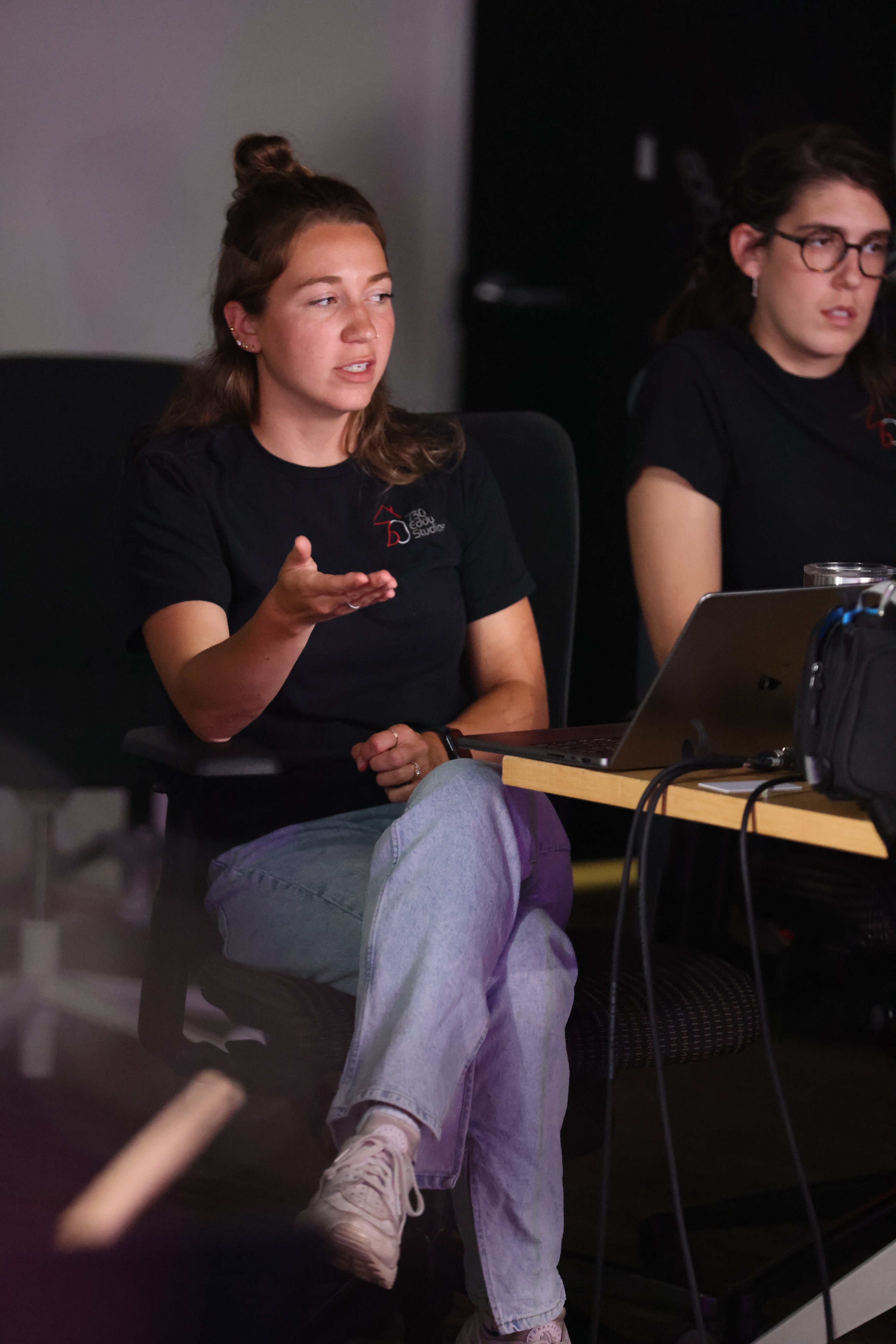7 min read
How to Get Camera-Ready: A Step-By-Step Guide to Representing Your Business on Camera
By: Julia Osterhouse on Jul 14, 2025 11:00:00 AM


1. Be Prepared

Before filming day even arrives, we recommend you come as prepared as possible. Preparing for something like this depends on the type of video you're in - is it scripted or interview-based?
If the video is scripted, be sure you know your lines ahead of time. You may not be required to memorize your script, but even if your production team has a teleprompter, becoming familiar with your lines can bring you confidence and peace of mind the day of.
Being interviewed can seem more daunting, but don't worry, there are still things you can do to prepare.
"A lot of the time we'll send the questions beforehand," says Liberty. "Like, 'Hey, just read through the questions, maybe think of some bullet point ideas that you might want to say to answer them.'"
If your team doesn't send you the interview questions in advance, go ahead and ask for a copy. A general outline of how you know you want to answer your questions can make you feel ready, but don't stress about fully planning out your responses. The beauty of video capturing the moments we don't always plan for.
2. Dress for Confidence, Comfort, and Camera

While adhering to your company's dress code, wearing something that makes you feel your best is crucial. Both confidence and comfort are vital to consider when choosing what to wear for the camera.
"What they wear is a big deal," says Liberty. "They should definitely wear something that they're comfortable in, that they feel confident in... Maybe you go get your nails done the day before, if that's something that helps you build confidence."
If possible, we also recommend being mindful of the neckline, material, and pattern of your shirt.
Most productions will clip a small microphone to your collar called a LAV mic, to record your voice. Large necklaces and beaded necklines can click against the microphone, messing up the audio quality. Choosing a shirt material that isn't too soft or flimsy is also appreciated, so your mic doesn't flop around as you move.
Patterned/striped shirts are best avoided because they can create what's called the Moire Effect. According to Pro Edu, "Moiré is an optical phenomenon that occurs when repetitive patterns in a scene interfere with the camera's sensor resolution. This interference distorts the image, resulting in unwanted lines, colors, and artifacts."
All that being said, these are just guidelines, not hard-and-fast rules. "In reality, for us to be good at our job, we can work with anything that anyone decides to wear," Liberty says. "We want to capture you and your daily personality. So trying to wear something that fits towards that would be most important of all, despite all the microphone and camera stuff."
3. Trust Your Production Team

If you have a solid production team, the shooting day should go smoothly with no stress on your part. Liberty ensures our production team greets you upon arrival and maintains a calm working environment.
"One thing that I like to do is I like to do a little research on their company beforehand," says Liberty. "I usually like to explain that this is just a conversation we're gonna be having... 'I have a list of questions here, but if you wanna add more or if you want to skip a question, that's okay...'"
Making an interview feel like a conversation is incredibly valuable, not only for your benefit but for the benefit of the project. "It can be easy to when you're interviewing someone, already start thinking about how you're going to phrase the next question. Instead, it's better if you can actively listen to what they said, maybe comment on it if it was something interesting."

In our experience, folks filming a scripted video tend to be less nervous, so long as you know your lines. However, Liberty still makes sure to create an environment where you can make mistakes and still feel good about your performance.
"We can do anything over again if they start to like fumble a little bit," says Liberty. "For us, trying to move slower and have a clear plan on what the day is going to be can help people a lot. If we are chaotic, everybody else is going to feel that."
4. Ask for What You Need

While a good production team should be checking in on you throughout the process, don't be afraid to speak up if you need anything, too. The production team is serving you, not the other way around. Water breaks, script changes, or script redos are all perfectly acceptable requests.
"It's our job to make you look the best as possible," says Liberty, "whether that be during the filming process or in the edit, and just knowing that we're always going to try and do our best to make you look the best as possible. So if you come as yourself and you're as prepared as you can be... It's going to be a good video."
5. Give Yourself Grace

Unless you act, model, or even sing professionally, you're probably not used to being on camera. And that's okay! It's an objectively strange experience, likely out of your comfort zone.
"Give yourself a break," Liberty says. "We're not expecting an A+ performance. We're not judging you, so don't judge yourself so much."
Remember not to put too much pressure on yourself, and just do your best. Your best is probably better than you think.
Let us know if this guide helps you, next time you're representing your company on camera!
